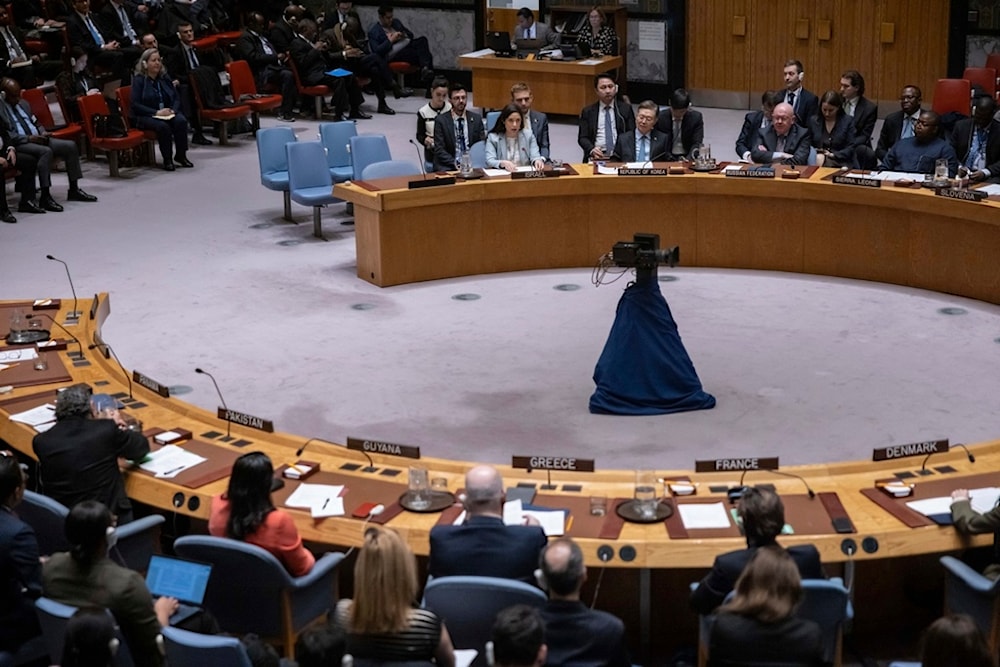UN warns of Sudan's division as RSF pushes for parallel government
The decision to establish an alternative authority has triggered international alarm, with Security Council members cautioning that "such actions could exacerbate the ongoing conflict in Sudan, further fragment the country, and worsen the already dire humanitarian situation."
-

Security Council meeting at the United Nations headquarters Monday, Jan. 20, 2025. (AP Photo/Yuki Iwamura)
The United Nations Security Council has reiterated its commitment to Sudan's sovereignty and territorial integrity, calling on all parties to end hostilities and engage in an inclusive political dialogue aimed at transitioning to a democratically elected civilian government.
This statement follows the controversial move by the Rapid Support Forces (RSF) and their allies, who signed the Sudan Founding Charter in Nairobi, Kenya, on February 23. The charter, backed by 23 political factions, sets forth plans for a decentralized system with eight regional administrations and a unified military structure. The initiative also envisions a federal and secular state while allowing some regions the right to self-determination under certain conditions, including maintaining a link between religion and governance.
The decision to establish an alternative authority has triggered international alarm, with Security Council members cautioning that "such actions could exacerbate the ongoing conflict in Sudan, further fragment the country, and worsen the already dire humanitarian situation."
Escalating Political Divisions
The RSF's latest move builds on efforts to create a parallel government, a plan formalized on March 4 with the signing of a transitional constitution. The document outlines a governance framework under RSF leadership, including provisions for a new bill of rights and a national army, but lacks a clear timeline for elections. The RSF has stated that a new administration will be set up in the coming weeks.
Supporters of the initiative argue that it aims to address service gaps in RSF-controlled areas. "Citizens in these regions have been cut off from essential services like the new banknotes issued by the army, passport processing, and document renewals," said signatory Alaa El-Din Nuqd.
However, the prospect of a competing government has raised serious concerns, particularly from Egypt, which has strongly opposed any moves that could threaten Sudan's unity. Cairo warned that such developments complicate the political landscape and hinder efforts to consolidate Sudanese factions under a single authority.
Meanwhile, Sudanese army chief Abdel Fattah al-Burhan had announced plans on February 9 to form a technocratic wartime government, with military sources suggesting its formation would be finalized once the army secures full control over Khartoum.
Read more: Egypt rejects all efforts to establish a parallel government in Sudan
Amid the rising tensions, the Security Council has welcomed calls from both the African Union and UN Secretary-General António Guterres for an urgent ceasefire, particularly during the holy month of Ramadan.
Council members have also underscored the importance of respecting international legal frameworks, particularly the UN arms embargo on Darfur, and urged all states to refrain from actions that could intensify the conflict. In this regard, the council praised the diplomatic efforts of UN envoy Ramtane Lamamra, who continues to work toward a peaceful resolution.
Mounting Humanitarian, Legal Challenges
Since the outbreak of hostilities in April 2023, Sudan has suffered devastating losses, with over 24,000 people killed and more than 14 million displaced. Many of those affected have fled to neighboring countries, while those who remain face severe humanitarian crises. Reports from human rights groups continue to document atrocities, including targeted killings and sexual violence, particularly in Darfur.
In response to these developments, Sudan has filed a case at the International Court of Justice (ICJ), accusing the United Arab Emirates (UAE) of violating the genocide convention by funding and arming the RSF. The UAE has denied these allegations, dismissing them as politically motivated. While ICJ rulings are legally binding, such cases typically take years to be resolved.

 4 Min Read
4 Min Read








